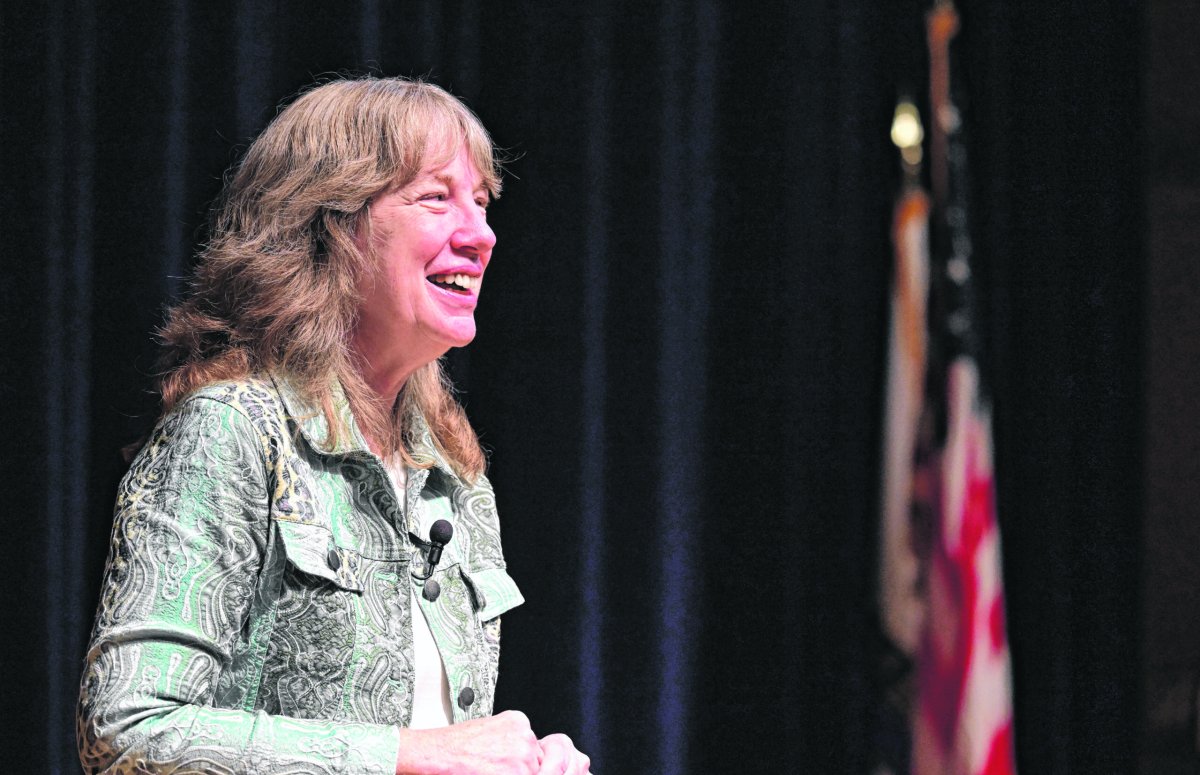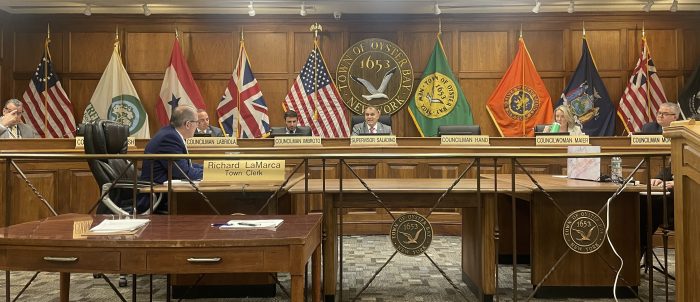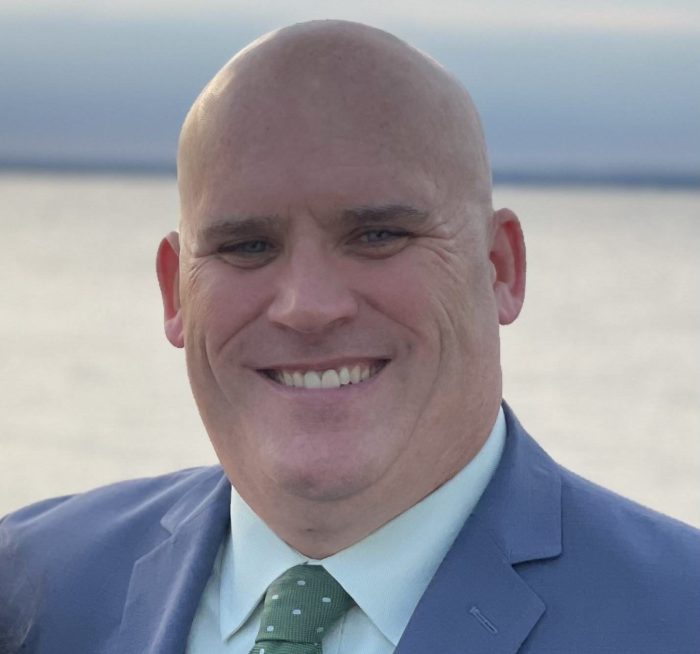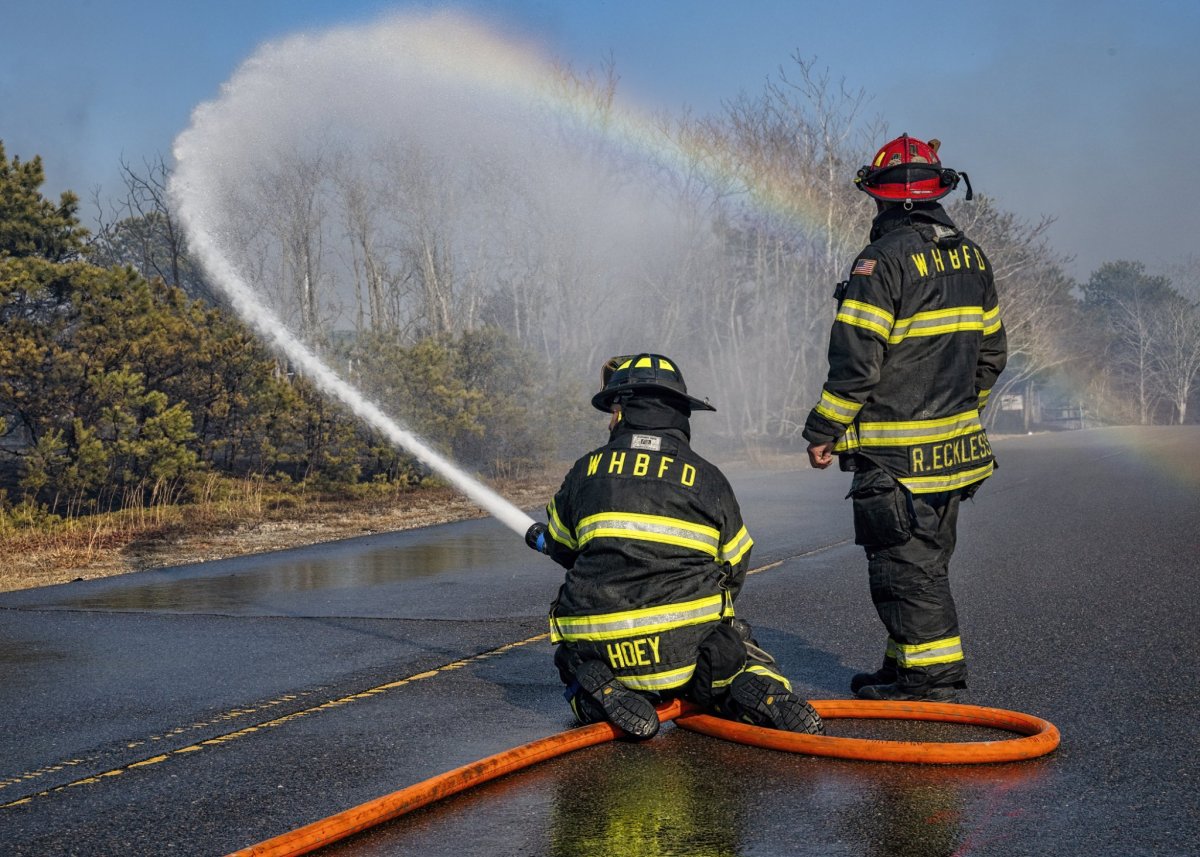The subject of physics, and giant labs like Brookhaven National Laboratory in Upton, have usually been the province of men.
Yet, the new director of the 5,300-acre BNL, which sits in the middle of Suffolk County, is a woman: JoAnne Hewett. The 63-year-old theoretical physicist, who took over the reins of the national energy lab after a stint at the Stanford Linear Accelerator (SLAC) National Accelerator Laboratory in Menlo Park, California, where she was most recently associate lab director for fundamental physics and chief research officer.
Hewett is the first woman to be named BNL’s director in its 76-year history.
She replaces Doon Gibbs, who announced his retirement in March 2022, and who had led the lab for nearly a decade.
“It does break a barrier,” Hewett said in an interview with the Press, referring to her appointment, which took place in July. “I started out in physics in college 40 years ago. I was the only woman in the room. But the longer I stayed, the more women joined.
“The percentage of women holding Ph.D.s in physics is the same as when I started,” Hewtt added. “But those who do make it are driven. A woman has to be 2.2 times better – I don’t know where they come up with that figure, but they do – than a man to get a job.”
But Hewett, who was also the first woman member to join SLAC, which she did in 1994, got the job at BNL, after what the lab said as an “international search.”
“She is a great choice to advance the Department of Energy’s priorities at Brookhaven, from fundamental breakthroughs to applications that improve people’s lives every day,” Dr. Asmeret Asefaw Berhe, the U.S. DOE’s Office of Science Director, said in a statement. BNL is under the jurisdiction of the DOE.
Hewett will oversee more than 2,800 scientists, engineers, technicians and professionals at BNL who are working to address challenges in nuclear and high-energy physics, clean energy, climate science, quantum computing, artificial intelligence, and national security.
Her major project, called BNL’s “crown jewel,” will be overseeing construction of a $3 billion electron-ion collider, a next-generation supercollider for advanced research. It will be the only such collider in the world, and is to be completed in 2032. The device will study the protons and neutrons that make up the atomic nucleus. It will act like a CT scanner for atoms.
Hewett said she is aware that many people are unfamiliar with the goings-on at BNL, and she hopes to change that. To help do so, the lab is building a welcome center, to be called the Science and User Support Center. The lab said this is the first building planned for what will be called Discovery Park, BNL’s gateway for the community at large to engage with the lab and the DOE.
Hewett was in a managerial role at SLAC, and she admits her role there made her miss research.
“I love doing research,” she said. “I thought there was nothing cooler than research. But one more research paper by me wouldn’t move the needle.”
She acknowledges that, currently, it is hard to say what will come out of the electron-ion collider project that may be of use to ordinary people.
“I cannot tell you what that will mean today,” she said. “But 50 years from now, we will know.”
Hewett said that she would consider her tenure at BNL a success if it could become another CERN, the famous European Organization for Nuclear Research in Switzerland. CERN operates the largest particle physics lab in the world.
“I would like Brookhaven to be the CERN of the United States,” she said.
Helping to familiarize people with the lab is also a key project, Hewett said. The lab is open to the public on four Sundays every year. “The public can come and see what we do,” she said.
Some 30,000 students visit the lab each year, she said.
How valuable is that? Hewett offered an example: A student from Queensborough Community College visited the lab some years ago. The student, an African American, came from an underprivileged background. During her visit, she was exposed to the world of chemistry for the first time in her life. She is now a staff scientist at the lab.
Hewett will also hold the title of professor at the State University at Stony Brook’s Department of Physics and Astronomy and professor at Stony Brook’s C.N. Yang Institute for Theoretical Physics.
“JoAnne brings vital experience and proven leadership skills to further Brookhaven Lab’s game-changing discoveries and innovative breakthroughs that benefit science and society,” Maurie McInnis, Stony Brook’s president, said in a statement.
Artificial Intelligence is in the news on an almost-daily basis. The Press asked Hewett for her thoughts on the matter, particularly on whether the technology can be safely used by humans.
“I think we’re at the beginning stages of this,” she said. “We have to find our path.”

































